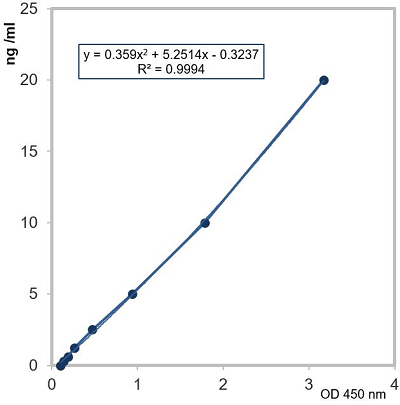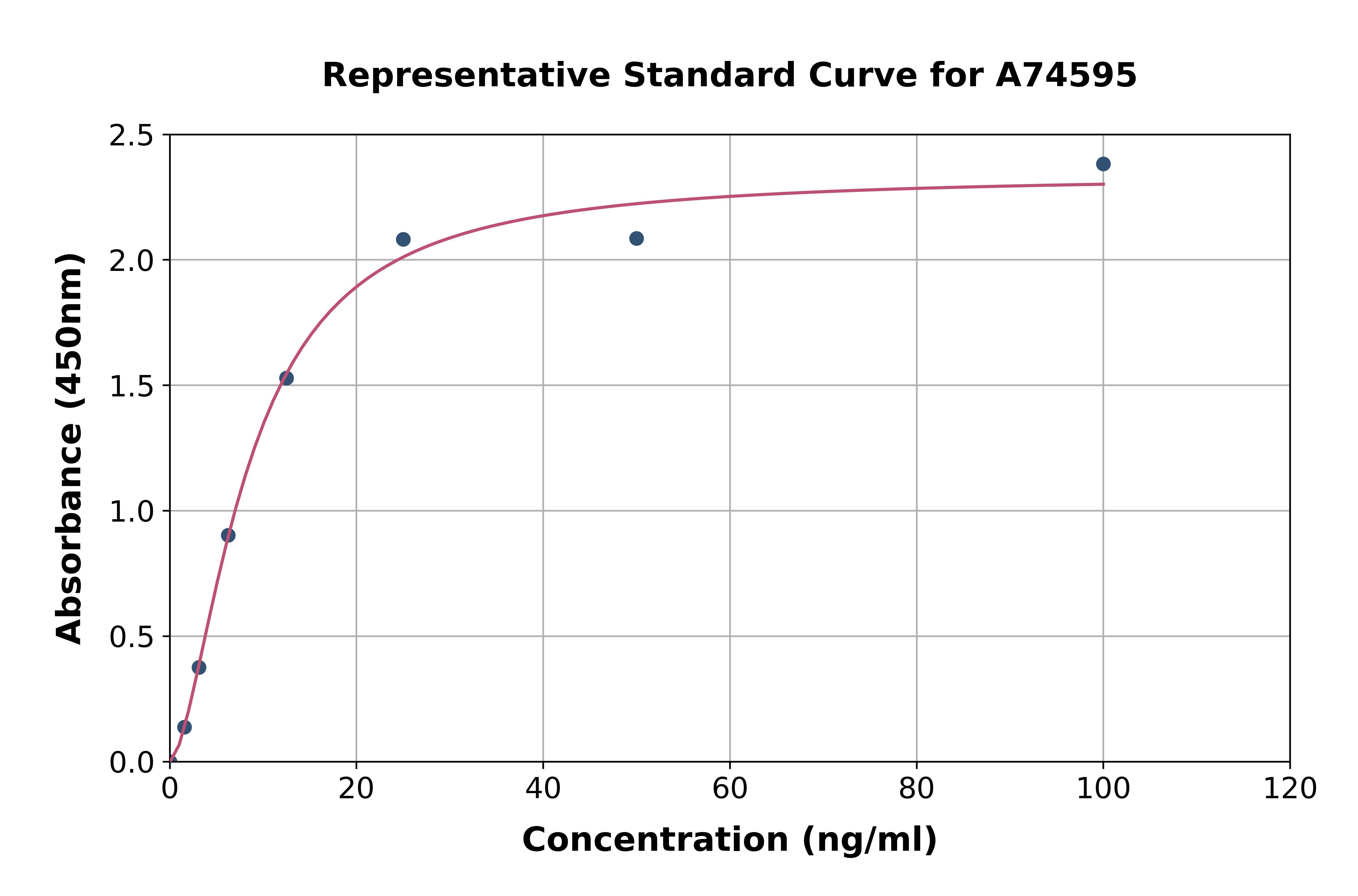
Standard Curve
Asprosin (human) ELISA Kit
AG-45B-0010
ReactivityHuman
Product group Assays
Overview
- SupplierAdipoGen Life Sciences
- Product NameAsprosin (human) ELISA Kit
- Delivery Days Customer10
- ApplicationsELISA
- Assay Detection Range0.3125 to 20ng/ml
- Assay Sensitivity230pg/ml
- CertificationResearch Use Only
- Protein IDP35555
- Protein NameFibrillin-1
- Scientific DescriptionAsprosin is a new fasting-induced protein hormone that targets the liver to increase plasma glucose levels. Asprosin is the C-terminal cleavage product of the protein Fibrillin-1. Asprosin is secreted from white adipose tissue and increases hepatic glucose production by using cAMP as a second messenger, leading to activation of protein Kinase A. Reduction of asprosin levels protects against metabolic syndrome-associated hyperinsulinism. Asprosin may act as a circulating hunger signal. Indeed, peripherally injected recombinant asprosin can cross the blood-brain barrier and intracerebroventricular (i.c.v.) injection of recombinant asprosin stimulated appetite in wild-type mice, indicating a central mechanism of action. Loss of asprosin in mice and human leads to decreased fat mass and body weight and hypophagia. Mice are also completely protected from the development of diet-induced obesity. Asprosin works by stimulating the orexigenic AgRP+ (Agouti-related neuropeptide) neurons via a cAMP-dependent pathway and by inhibiting the anorexigenic neurons POMC+ (pro-opiomelanocortin) neurons in a GABA-dependent manner. Mutation in asprosin in human leads to the pattern of metabolic dysregulation, including partial lipodystrophy, accompanied by reduced plasma insulin. Due to its key role in food regulation, asprosin function could serve as a potentially unique therapeutic target against obesity, diabetes or metabolic diseases. - ELISA Assay. Detects human asprosin. Assay Type: Sandwich. Detection Type: Colorimetric. Sample Type: Cell Culture Supernatant, Plasma, Serum. Range: 0.3125 to 20ng/ml. Sensitivity: 230pg/ml. Asprosin is a new fasting-induced protein hormone that targets the liver to increase plasma glucose levels. Asprosin is the C-terminal cleavage product of the protein Fibrillin-1. Asprosin is secreted from white adipose tissue and increases hepatic glucose production by using cAMP as a second messenger, leading to activation of protein Kinase A. Reduction of asprosin levels protects against metabolic syndrome-associated hyperinsulinism. Asprosin may act as a circulating hunger signal. Indeed, peripherally injected recombinant asprosin can cross the blood-brain barrier and intracerebroventricular (i.c.v.) injection of recombinant asprosin stimulated appetite in wild-type mice, indicating a central mechanism of action. Loss of asprosin in mice and human leads to decreased fat mass and body weight and hypophagia. Mice are also completely protected from the development of diet-induced obesity. Asprosin works by stimulating the orexigenic AgRP+ (Agouti-related neuropeptide) neurons via a cAMP-dependent pathway and by inhibiting the anorexigenic neurons POMC+ (pro-opiomelanocortin) neurons in a GABA-dependent manner. Mutation in asprosin in human leads to the pattern of metabolic dysregulation, including partial lipodystrophy, accompanied by reduced plasma insulin. Due to its key role in food regulation, asprosin function could serve as a potentially unique therapeutic target against obesity, diabetes or metabolic diseases.
- ReactivityHuman
- Storage Instruction2°C to 8°C
- UNSPSC41116100
- SpeciesHuman



